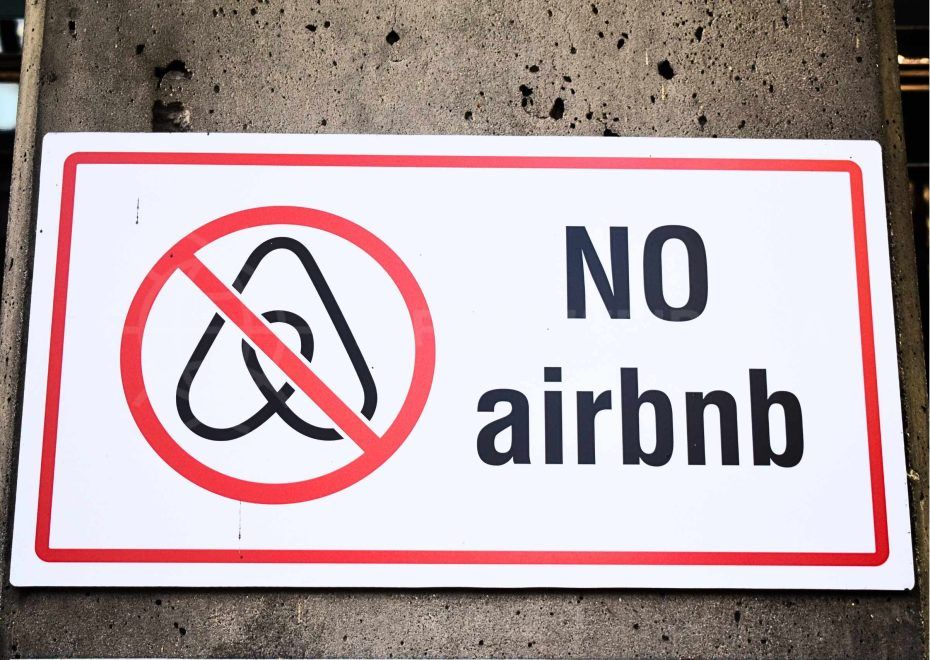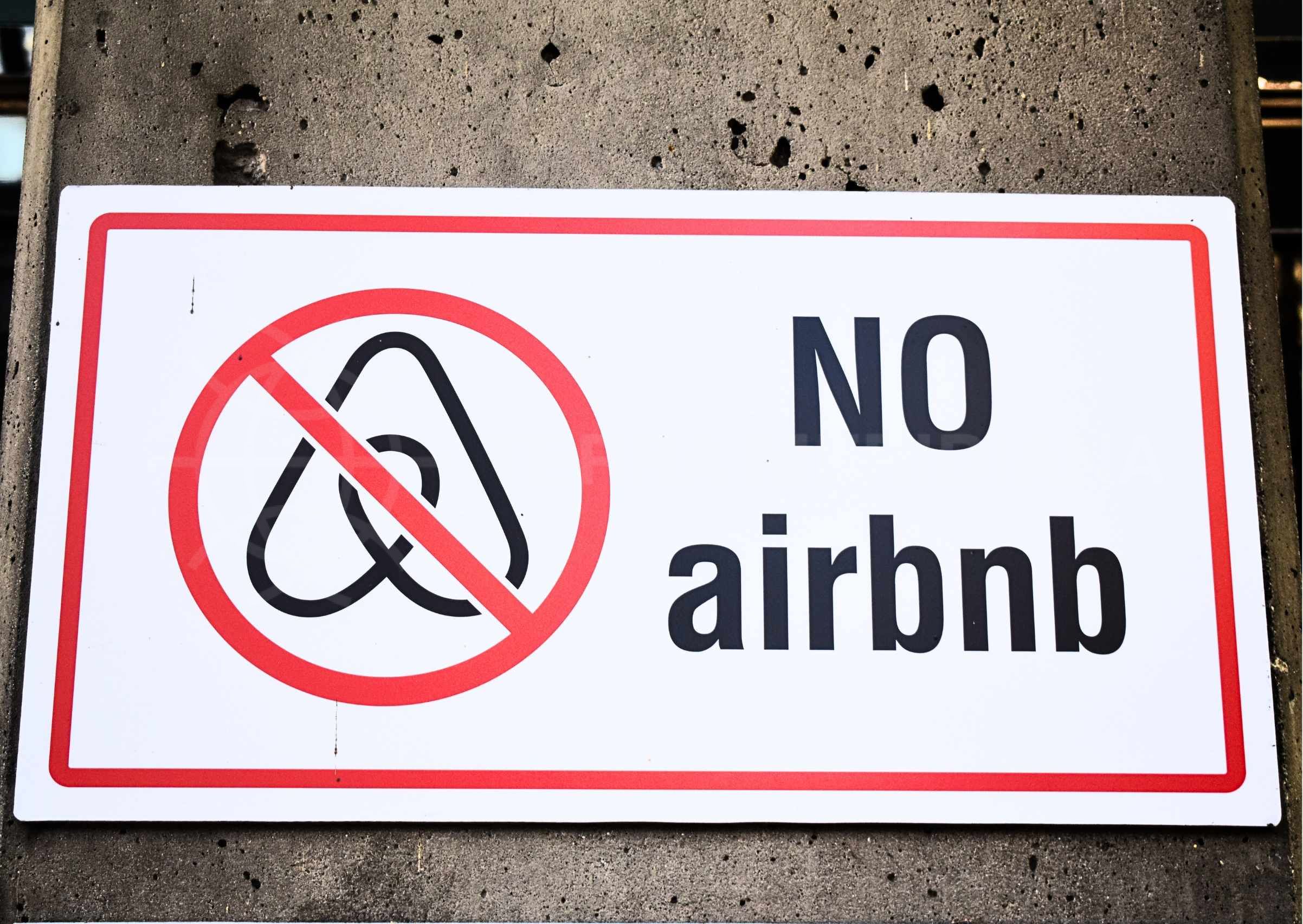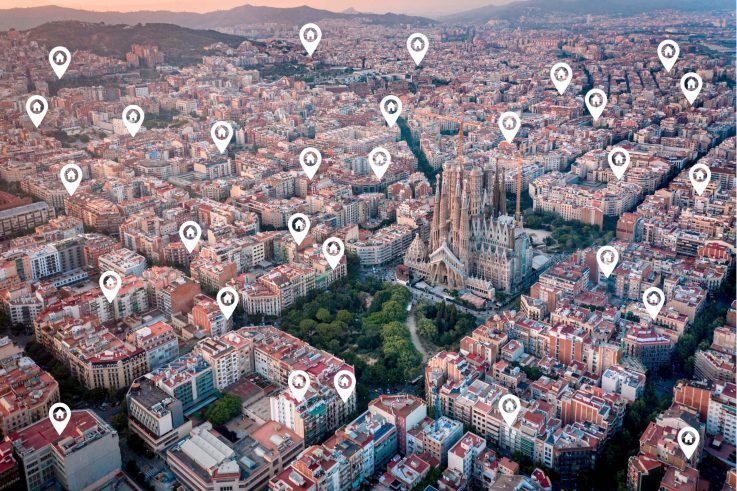
Opinion
New Law in Andalusia To Rein In Rampant Airbnbs
The Junta de Andalucia (the regional government of Andalusia) recently passed a long-awaited reform to the tourism sector in the autonomous community. In particular, they changed the regulations and standards governing tourist apartments, particularly Airbnbs. It is no secret that there has been an explosion of Airbnbs in Spain over the last decade, along with much debate about their contribution to the local economy – and possible aggravation of the long-term housing market, the local character of neighbourhoods, and more.

Analysis of Airbnb’s Impact
I wrote about some of these debates last summer, analysing their truth or falsity based on available statistics. I think those arguments still apply, and we will return to them. But first, let’s take a look at the new law and what it mandates. According to the Andalusian government, over 80,000 homes are registered as being used for tourism purposes across the autonomous community. However, they also noted that the registry of such tourist homes and apartments “increases daily“. In Malaga, for instance, there are currently 6,550 tourist apartments. That’s up 10% in the last year. Across the whole province of Malaga, there are now 39,041 tourist apartments. That’s an 11% increase.
Regulatory Changes and Implications
With a sector of such size, it’s been obvious that better regulations and standards have been needed for some time. What’s more, Andalusia was the last autonomous community in Spain to implement proper regulations. One big feature of the new law is that it allows municipalities to establish limitations on the maximum number of tourist apartments, either per building, per sector/area, during certain periods of the year, or other criteria. Any such limitations must balance economic concerns with quality of life concerns for local residents. And according to the Junta, municipalities will have to provide clear justification for any limitations. As they put it, the new law isn’t meant to be a “blank cheque.”
Addressing the Airbnb Economy
In my view, this is a wise choice, as the distribution of Airbnb-style tourist apartments is uneven across Andalusia. In a town in the interior, there might be very few. On the coast, they are heavily concentrated. Different measures are needed for different conditions. The law also establishes new minimum amenity and size requirements for apartments. This includes specifications such as mandating at least 14 square meters per guest and a maximum of 15 guests per home. There also must be at least 2 bathrooms for more than 5 guests, along with specific kitchen and bedroom facilities in terms of pots, pans, cutlery, and appliances. And, of course, there must be proper beds in proper rooms. A fold-out cot on a balcony just won’t do. Owners have one year to comply with these regulations.
Future Outlook and Challenges
Additionally, the law creates the role of an “operating company” or property manager, which wasn’t recognized previously. This is a company which is responsible for managing the apartments and complying with all regulations, even if they are not the legal owner of the property. This improves accountability and helps those who are actually carrying out day-to-day operations locate it. Again, this is long overdue as it’s quite open for many owners to delegate operations to companies that manage dozens of properties at a time. The owners might just receive a cheque and a regular report.
Regulatory Balance in the Tourism Sector
Regulation of this booming sector is a good thing. But the new law must walk a tightrope. Tourism is a key industry that employs hundreds of thousands of people in Andalusia, providing them with income and a career. But it is no good if it ruins the quality of life of Spaniards in high tourism regions. Or if the industry creates imbalances that eliminate long-term rental housing, make it unaffordable, etc. The government must promote the free market, encouraging initiative and innovation. However, alongside this is the need for regulation that is applied equally and justly. For instance, the hotel industry has complained about an unfair competitive advantage that was given to Airbnbs. Official hotels have stringent regulations for quality, health, and safety, etc. But, up until now, that wasn’t sufficiently the case for the more nimble and often ephemeral Airbnb tourist apartments.
Addressing the Evolving Airbnb Economy
That includes labour rights for the many workers now employed as cleaners, virtual front desk workers, and so on. A race to the bottom in terms of conditions and quality benefits no one. This is especially true because the picture that once prevailed is of individuals renting out an extra room in their apartment. Or even a family buying an investment apartment and renting it out for a little extra money is no longer what the Airbnb sector looks like. The Airbnb economy is now, de facto, an economy of dispersed hotels. Again, as I noted last year: In Malaga, 74% of listings are made by companies and people who have multiple properties. There are around half a dozen companies with more than 50 properties, and one has 178 listings. In Barcelona, the number of multi-listing “Airbnb hosts” is 71%, with one company alone having 241 listings! For that reason alone, the Junta’s introduction of an “operating company” to the accountability chain is a good thing.
Debating the Impact of Tourism on Local Communities
As I alluded to above, there continues to be a lot of heated debate about the pros and cons of Airbnb and the “Disneyfication” of Spanish high tourism regions. Because of the heat of the debate, it is often true that the real character of the situation is lost. I analyzed in my earlier article that tourism-caused rental price hikes are a moderate, but not catastrophic, problem in dense tourism neighbourhoods. However, the bigger, more intractable problem lies in the loss of long-term rental housing with nothing to replace it. As I wrote last June: In Spain, 41% of tenants spend over 40% of their income on rent, which is far too high and puts Spain as the fourth highest in Europe in terms of the financial overexposure of tenants. The challenge is extreme for young people looking for a flat to share. In a 2022 study by the real estate web portal Idealista, 45% fewer shared accommodations were shared.
Tourism brings jobs and money. That’s good. The lack of housing for locals is bad. But the lack of housing – and high rents – is not per se caused by tourism. It is caused by…a lack of housing. This law is not bad and may even be very good. We will have to see how it works out in practice. There will almost certainly be kinks, but if it gives more local control over a problem which is different in every locality, that is a good start. Likewise, it can professionalise the sector and raise standards. No one wants to stay in a broom closet with a hole in the floor for a toilet. However, targeting Airbnb cannot be seen as a solution to the problem of a lack of housing. The government needs to be proactive in specifically targeting an increase in quality long-term rental housing stock. That will require incentives to builders and landlords, both large and small, who are attracted to the promise of bigger returns from tourism rentals. In that sense, this law must be seen as just one tool in what needs to be a larger toolbox of policies.
By Adam Neale | Opinion | February 27th, 2024
Related Posts


